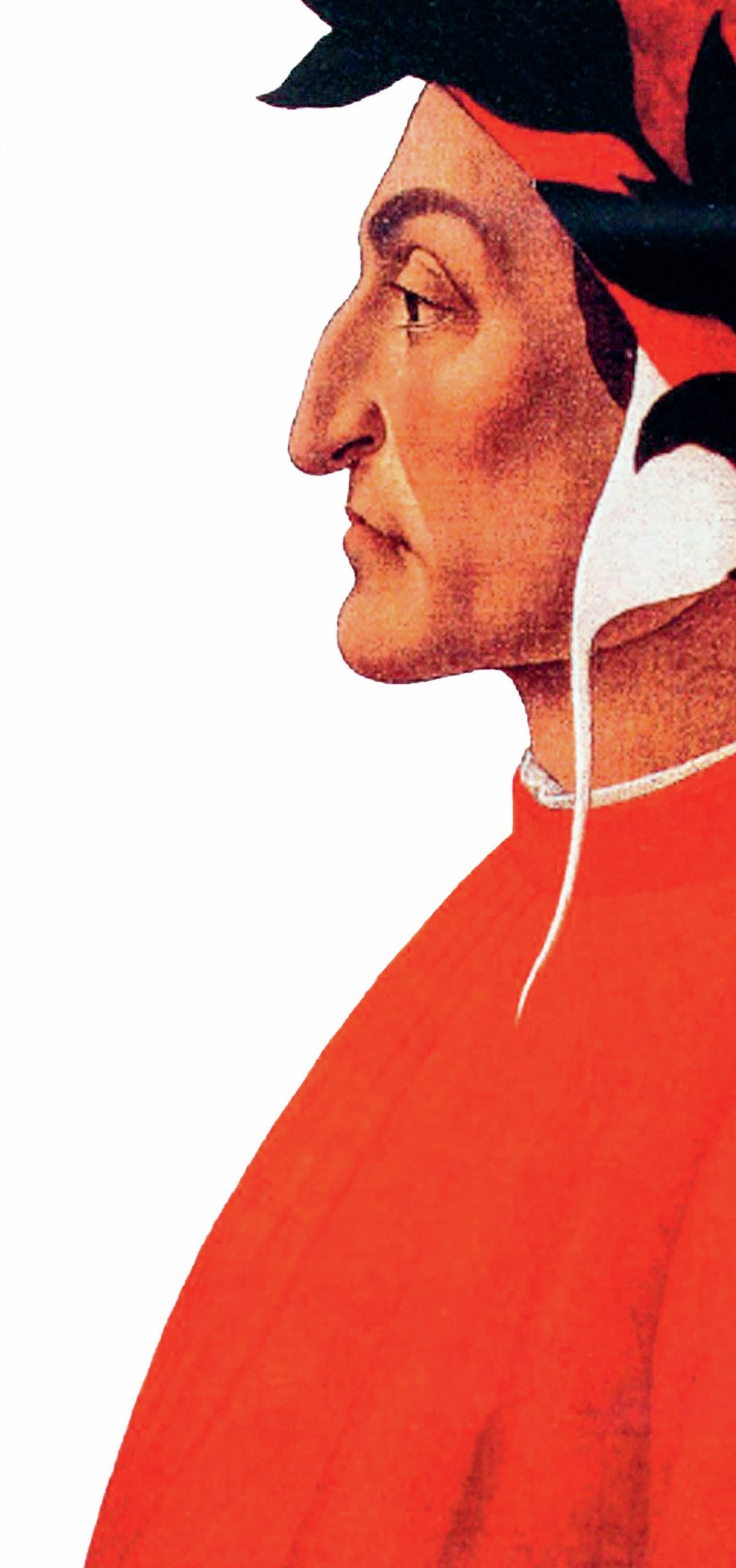
Around mid-September 700 years ago, Dante died in Ravenna. The cause may have been malaria. It was the end of a life whose pattern is retraced in a poem, now known as the Divine Comedy. Born in Florence in 1265, Dante had been living in exile from his native city for almost 20 years, during which he had composed his Comedy, dramatising a personal pilgrimage through the three worlds of the medieval Christian afterlife: hell, purgatory and paradise.
At the beginning of that pilgrimage the ‘Dante’ character is in the ‘dark wood’ of a midlife crisis that can be resolved only by first descending into the world of the damned, and so he faces ‘the challenge of a long journey and the grief it brings’ (Inferno 2, ll. 4–5). Ensuing encounters with a cast of characters from classical myth to those of his own time and place will generate horror, pity, exhilaration and a constant struggle to understand the workings of human history and divine justice. Composed in the Tuscan dialect of Italian, his Comedy set a standard for ambitious vernacular writers and came to be regarded as one of the most inclusive works of European literature.
Your organisation does not have access to this article.
Sign up today to give your students the edge they need to achieve their best grades with subject expertise
Subscribe




